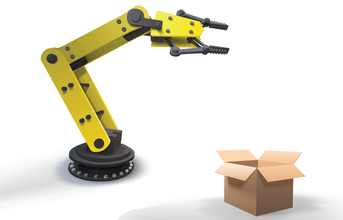
Mallavarapu concludes that bringing in automation to existing facility may look difficult at the outset but when compared with the long term benefits, it is essential to transition from legacy manufacturing to the automated processes. This enables organizations to stay ahead of competition. Nerurkar from TÜV SÜD states that application softwares used in industrial automation that is distributed on the shop floor, takes advantage of the flexibility provided by using programmable equipment. "To put it in perspective, if a car manufacturer is offering a warranty for five years and free replacement of modern, compact and complex but very efficient engine, against any manufacturing defect, certainly the success can be attributed to industrial automation. This is only one of the several benefits of manufacturing using industrial automation. It enhances not only the final product quality but streamlines the entire production chain and aids in efficient waste reduction and energy conservation as well."
Gandhi summarises in the context of ‘partnership'. "If the automation solutions provider has forged a customer centric relationship as a ‘complete end-to-end solutions provider' - working with the customer right from the stage of concept creation to execution to after sales support- it is very much feasible to implement changes swiftly, at the desired level & cost, without affecting the RoI, quality and other essential key performance indicators," he says. Racold's Bhangale point outs that many time companies focus on big automation to achieve better results. "This is not bad, but at the same time companies need to focus on low cost automations (LCA) to get some incremental benefits and reduce MUDA, MURA & MURI. Like use of gravity feed conveyors to reduce number of material handler, redesigning of assembly / work bench for better utilisation of golden zone, line balancing, etc, shop floor re-layout to reduce material & multiple handling." Vachhani from Varroc is proud of the fact that his organisation is leading in making this push into the realm of Industry 4.0 adoption. "We have started implementing this solution across all of our plants and we were able to see the results. Machines and systems were seamlessly connected on Datonis in real time for all our operational metrics of machine utilization, performance, quality, condition and energy consumption. The Industry 4.0 solutions empowered us to plan better and improve our product quality, OEE and Capacity utilization."
END



























